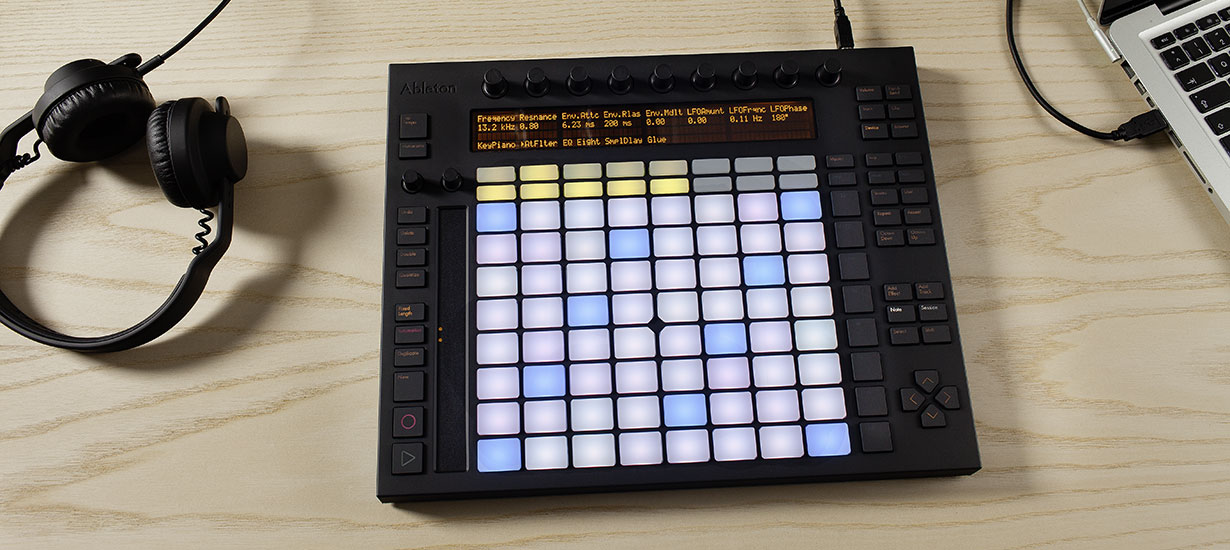I’m working on a long paper right now with my colleague at Montclair State University, Adam Bell. The premise is this: In the past, metaphors came from hardware, which software emulated. In the future, metaphors will come from software, which hardware will emulate.
The first generation of digital audio workstations have taken their metaphors from multitrack tape, the mixing desk, keyboards, analog synths, printed scores, and so on. Even the purely digital audio waveforms and MIDI clips behave like segments of tape. Sometimes the metaphors are graphically abstracted, as they are in Pro Tools. Sometimes the graphics are more literal, as in Logic. Propellerhead Reason is the most skeuomorphic software of them all. This image from the Propellerhead web site makes the intent of the designers crystal clear; the original analog synths dominate the image.
In Ableton Live, by contrast, hardware follows software. The metaphor behind Ableton’s Session View is a spreadsheet. Many of the instruments and effects have no hardware predecessor.
Controllers like the APC and Push are designed to emulate Session View.
Another software-centric user interface can be found in iZotope’s Iris. It enables you to selectively filter a sample by using Photoshop-like selection tools on a Fourier transform visualization.
Music is slow to embrace the idea of hardware designed to fit software rather than the other way around. Video games have followed this paradigm for decades. While there are some specialized controllers emulating car dashboards or guns or musical instruments, most game controllers are highly abstracted collections of buttons and knobs and motion sensors.
I was born in 1975, and I’m part of the last age cohort to grow up using analog tape. The kids now are likely to have never even seen a tape recorder. Hardware metaphors are only useful to people who are familiar with the hardware. Novel software metaphors take time to learn, especially if they stand for novel concepts. I’m looking forward to seeing what metaphors we dream up in the future.




